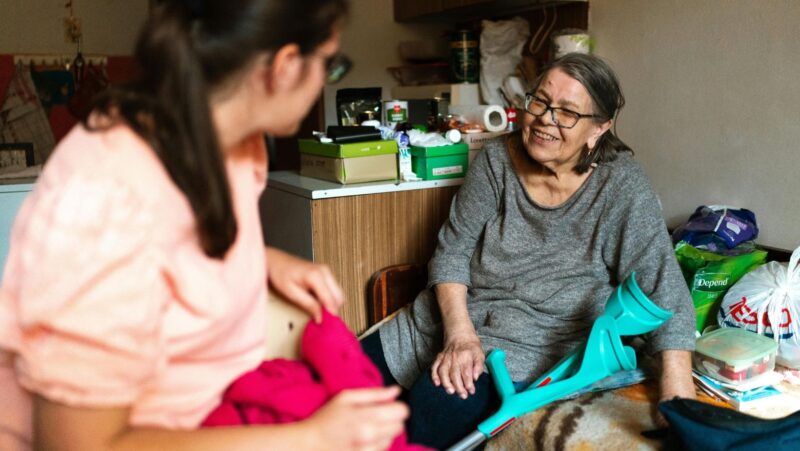
Talking with staff at an addiction treatment center might feel scary at first, but it doesn’t have to be. These people are here to help, and the better you talk with them, the better they can understand what you or your loved one needs. Good communication makes everything easier—faster help, fewer mistakes, and stronger support.
Think of it like a team. When everyone is talking and listening well, the team works better. Staff members at treatment centers are trained to support healing, but they still need clear, respectful conversations from you. This guide will show you easy ways to connect with them—so that everyone feels heard and supported on the road to recovery.
Build Trust Through Clear and Honest Communication
When it comes to how to communicate effectively with staff at addiction treatment centers, the first and most important step is building trust. Without trust, it’s hard to feel safe or heard. Trust takes time, but it starts with being clear, honest, and respectful in every conversation.
Be Honest, Even When It’s Hard
Honesty helps staff understand what you or your loved one really needs. If something feels wrong, it’s okay to say it. If you don’t understand something, ask. No one expects you to know everything, and the staff is there to help. When you speak honestly, it shows that you’re ready to work with them, not against them.
Keep Your Words Simple and Respectful
You don’t need fancy words or big explanations. Just speak from the heart and stay polite. Saying “please” and “thank you” shows respect and makes conversations easier. When you treat staff with kindness, they are more likely to respond in the same way. Respect builds a better connection.
Ask Questions Without Worry
It’s okay to ask questions. In fact, it’s a good thing. Staff members would rather explain things than have you feel confused or unsure. When you ask, you show that you care and want to understand. This kind of open talk builds trust fast.
Trust Helps Everyone Work Together
When trust is strong, everyone works better together. Staff can support you more clearly, and you can feel safer sharing your thoughts. Clear and honest communication is like the glue that keeps the team working smoothly. In addiction recovery, that teamwork can make all the difference.
Understand Their Roles and Responsibilities
When learning how to communicate effectively with staff at addiction treatment centers, it’s important to first understand who these staff members are and what they do. Knowing their roles helps you talk to the right person at the right time, making your conversations clearer and more helpful.
Who Are the Staff Members?
Addiction treatment centers usually have a team made up of different people. There are nurses who take care of medical needs, counselors who guide emotional healing, and support staff who help with daily activities. Each person has a special job, and knowing this can make communication easier.
Why Knowing Their Jobs Matters
When you understand what someone’s role is, you know what kind of questions to ask. For example, if you have a medical concern, it makes sense to speak with a nurse. If you want to talk about feelings or challenges, a counselor is the right person. This way, you don’t waste time or get confused, and staff can help you better.
Respecting Their Time and Efforts
Staff members are busy, working hard to support many people. By knowing their roles, you can be respectful of their time. For example, you might wait for a counselor to finish a session before asking a question or save small requests for the right moment. This respect shows that you value their work, which helps build a positive relationship.
How Understanding Roles Improves Communication
When you know who does what, it makes your conversations smoother and more productive. You’ll feel more confident asking questions, and staff will see that you’re serious about working together. Clear communication helps the whole team provide better care, making the treatment process easier for everyone involved.
Stay Calm and Listen First
A key part of how to communicate effectively with staff at addiction treatment centers is learning to stay calm and listen before speaking. When emotions run high, it’s easy to say things you don’t mean or miss important information. Taking a moment to stay calm helps you think clearly and makes conversations more productive.
Why Staying Calm Matters
Staff at treatment centers deal with many tough situations every day. If you stay calm, it helps keep the conversation peaceful and respectful. When everyone feels calm, it’s easier to solve problems and find the best solutions. Plus, staying calm shows that you’re serious about working together.
The Power of Listening
Listening might seem simple, but it’s one of the most important skills in communication. When you listen carefully, you understand what the staff is really saying.
This helps you avoid misunderstandings and shows respect for their experience and advice. Listening first also gives you time to think before you respond.
How to Practice Active Listening
Active listening means paying full attention without interrupting. You can nod, say “I see,” or ask questions to show you’re engaged. This lets the staff know you value their input, which encourages open and honest talks. It’s a two-way street—when you listen, they listen to you, too.
Calm and Listening Build Better Teams
In addiction treatment, teamwork is everything. Staying calm and listening first helps create trust and respect between you and the staff. It makes it easier to work together toward recovery. When everyone feels heard and understood, progress happens faster and feels more hopeful.
Speak Up With Confidence and Respect
One of the most important parts of how to communicate effectively with staff at addiction treatment centers is learning to speak up clearly, with both confidence and respect. Your thoughts and feelings matter, and sharing them helps staff understand how to support you best.
Why Your Voice Matters
Speaking up means letting the staff know what you need, how you feel, or if something isn’t working. When you do this confidently, staff can respond faster and find better ways to help. Remember, you have a right to be heard, and your input is important in your recovery or your loved one’s.
How to Speak With Confidence
Confidence doesn’t mean being loud or forceful. It means sharing your thoughts calmly and clearly. Using simple “I” statements, like “I feel worried” or “I need help with this,” helps express your feelings without blaming anyone. This makes conversations smoother and more positive.
Respect Goes a Long Way
Respectful language shows that you value the staff’s work and care. Even when you disagree or need to bring up a problem, staying polite helps keep the conversation open and friendly. Respect encourages staff to listen closely and work harder to meet your needs.
Balance Confidence and Respect for Better Results
When you speak up with confidence and respect, it creates a strong connection with the staff. They’ll be more willing to listen, understand, and support you. This balance helps build trust and makes recovery a team effort where everyone works together for success.
Conclusion
Talking clearly and kindly with treatment staff makes a big difference. When you listen, ask questions, and stay respectful, it helps everyone do their job better. Recovery is a team effort—and good communication keeps that team strong. Speak up, stay calm, and trust the process. You’re not alone in this journey.













